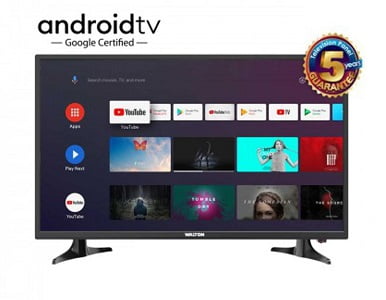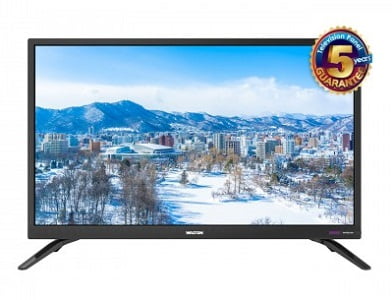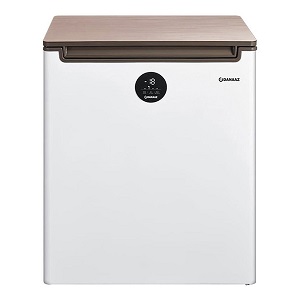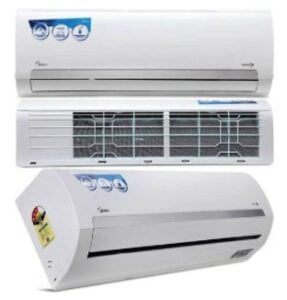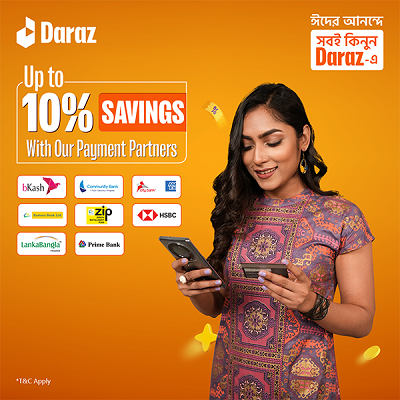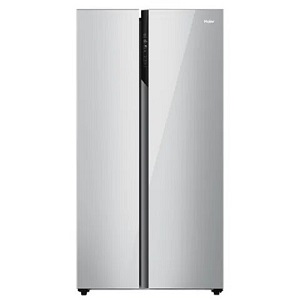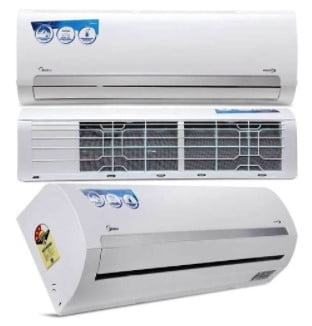Solar Panel Installation: How to Install Solar Step by Step
Solar panel installation involves the process of placing panels on rooftops or on the ground to set up a renewable power source. As the world becomes more environmentally conscious, many homeowners and businesses are turning towards solar power.
This renewable energy source is clean, low maintenance, and can help reduce monthly energy bills. Solar panel installation involves the careful placement of panels on rooftops or ground-mounted systems, with the goal of capturing the maximum amount of sunlight to generate electricity.
It’s a major investment, but one that pays off both financially and environmentally. In this article, we’ll explore the process of solar panel installation in depth.
Solar Energy Potential in Bangladesh
Bangladesh has been blessed with remarkable solar potential due to its geographical location. The country receives an average of 4-6kwh/m2 of solar radiation per day throughout the year (Source). The high influx of solar radiation makes Bangladesh an ideal spot for solar panel installations.
In this section, we will discuss the potential of solar energy in Bangladesh and why it’s a practical solution to meet the country’s increasing energy needs.
Unlimited Solar Resources
With annual solar radiation of around 1500-2000 kWh/m2, Bangladesh has a huge opportunity to generate electricity from solar energy. It has been estimated that the country receives around 5 hours of sunlight per day, indicating that solar panels could operate optimally and generate electricity without any interruptions.
Government Policies
The government of Bangladesh has taken the solar revolution very seriously, and they are committed to achieving their goal of producing 10% of their energy from renewable sources by 2020 and 20% by 2040. As a result, they are willing to incentivize solar power-related investment and give concessions to those who invest significantly in solar energy.
They have implemented various policies that have encouraged the usage of renewable energy, such as solar home systems, solar irrigation pumps, and solar-powered street lights.
Economic Viability
The economic opportunities that come with solar power in Bangladesh are tremendous. Due to the abundance of sun, solar panels can generate electricity dramatically and at a lower cost. Bangladesh currently has about 90 million households that use kerosene lamps, which expose them to harmful pollutants, produce CO2 emissions, and is more expensive than using solar lamps.
Fortunately, the cost of installing solar panels has dramatically reduced over the years, and it’s now feasible for households to install them.
Bangladesh’s solar power potential has provided an excellent opportunity to offer a sustainable solution to meet the country’s energy needs. With ample solar resources, government policies, and economic viability, it’s time for Bangladesh to take advantage of this opportunity and move towards a cleaner, greener, and more sustainable future.
Solar Panel Installation Process: Step by Step
Installing solar panels is a great way for homeowners to reduce their carbon footprint and save money on energy bills. However, the installation process can be intimidating if you’re not familiar with it. This guide will help you navigate the solar panel installation process.
Step 1: Site Assessment
Before installing solar panels, a site assessment is conducted. A qualified installer will inspect your home’s roof or the area where you want to install the solar panels. They will determine the size of the system you need and whether your roof or property is suitable for solar panel installation.
Step 2: Design & Permitting
Once the site assessment is complete, the installer will design a solar panel system that meets your energy needs and the requirements of your local building department. They will submit the appropriate paperwork to obtain permits for installation.
Step 3: Installing the Panel
Once the permits are obtained, installation can begin. Depending on the size of the system and the complexity of the installation, the process can take a few days to a few weeks.
- Install the Racking System: The first step in the installation process is to install the racking system, which supports the solar panels.
- Placing the Panel & Wiring: After the racking system is installed, the panels are carefully placed onto it. Wiring and other components are also installed at this stage.
- Inverter Installation: Finally, the inverter which converts the direct current (dc) power generated by the solar panels into alternating current (ac) power that can be used to power your home, is installed.
Step 4: Inspection and Interconnection
Once the installation is complete, a final inspection is conducted to ensure that the system is safe and meets all code requirements.
After passing the inspection, the system is connected to the grid and turned on. Your home is now powered by the sun!
Solar panel installation can seem complicated, but with the help of a qualified installer, the process can be smooth and efficient. By following the steps outlined in this guide, you can take the first step towards renewable energy and a more sustainable future.
What to Consider While Installing a Solar Panel?
If you’re considering installing solar panels, it’s essential that you evaluate your property’s solar potential first. Here are some key points to keep in mind:
- Check your roof: The orientation, angle, and shading of your roof impact how much sunlight your panels will receive. A south-facing roof with minimal shading is generally the best option, but southeast and southwest-facing roofs can also work well.
- Consider your location: The amount of sunlight your panels receive each day will depend on your climate and latitude. As a general rule, properties in sunny areas with long days have a higher solar potential.
- Evaluate your energy needs: Understanding your current energy usage will help you determine how many panels you’ll need to achieve your desired level of energy independence.
- Look for rebates and incentives: Many states and local governments offer rebates and incentives for solar panel installation. Make sure to do your research to see what might be available in your area.
- Consult with a professional: A solar panel contractor can assess your property’s solar potential, help you design a system that meets your energy needs, and provide an estimate for installation costs.
By taking these factors into account, you can determine whether solar panel installation is a good fit for your property and make an informed decision about how to move forward.
The Growing Significance of Solar Panel Installation in Bangladesh
Solar Panel Installation in Bangladesh: Embracing A Sustainable Future
Bangladesh is one of the countries significantly suffering from climate change impacts such as natural disasters and sea-level rise. The country is actively promoting and embracing renewable energy sources like solar power to tackle this global issue. Here’s why solar panel installation is becoming increasingly significant in Bangladesh.
Going Green: Reducing Carbon Footprints
- Solar power systems are environmentally friendly as they don’t emit any greenhouse gases or pollutants.
- The installation of solar panels helps reduce the dependence on fossil fuels, which contribute significantly to rising carbon emissions.
- Shifting to solar power helps in mitigating the effects of climate change for the future generation.
Cost-Effective: Reducing High Energy Costs
- Solar power generates electricity without any fuel, significantly reducing monthly energy bills for homeowners and businesses.
- With the right sizing of the solar panel system, surplus electricity produced during the daytime can be sold back to the grid, providing income for the owners.
- Government incentives and tax benefits further reduce the installation cost, making solar power affordable and cost-effective.
Powering Rural Communities: Ensuring Energy Equity
- Rural areas often face difficulties accessing electricity due to the lack of power grids or limited distribution networks.
- Installing solar panels can harness the abundant solar energy in rural areas and provide clean and reliable electricity.
- Solar power reduces the dependency on centralized power stations, ensuring energy equity and access to all areas of the country.
Empowering Local Industries: Creating Job Opportunities
- The installation of solar panels requires skilled technicians and workers, creating job opportunities and promoting the growth of the renewable energy industry.
- With the government’s focus on increasing renewable energy sources’ capacity, the demand for solar panel installation is expected to grow, generating new employment opportunities.
- Investing in the renewable energy sector, particularly solar power, can diversify and strengthen the country’s economy in the long run.
Solar panel installation is a cost-effective and environmentally friendly solution to achieve sustainable development and mitigate the effects of climate change in Bangladesh. Embracing renewable energy sources, particularly solar power, can create a positive environmental, social, and economic impact, leading to a sustainable future.
Solar Panel Buying Guide: Factors Consider Buy a Solar Panel
Making the decision to switch to solar power is an excellent way to help the environment and reduce energy costs over time. However, with the variety of solar panel options available in the market, selecting the best panel for your home can be a bit daunting.
Here’s a comprehensive buying guide that covers what to consider before investing in solar panels.
Panel Type
Different types of solar panels have different warranties, costs, and efficiency ratings. Take advantage of your research skills to make an informed decision about the best type of solar panel for your home, based on:
- Monocrystalline panels – highest efficiency and most expensive
- Polycrystalline panels – good efficiency and moderately priced
- Thin-film panels – least efficient and lower priced
- BIPV (building integrated photovoltaics) panels – most expensive but aesthetically pleasing.
Also, consider the weather conditions in your area before selecting a panel type.
Efficiency
Efficiency indicates the percentage of solar energy that the panel can convert into electricity. Solar panels with perfect efficiency still do not exist because solar technology has limitations. However, you can choose a panel with high efficiency to generate more electricity in a shorter span.
Size of Panels
The size of solar panels to install depends on your energy demand, which can be determined through an energy audit of your home. Understanding your energy usage is crucial in deciding the dimensions of the panels you need.
Warranties
Before investing in solar panels, check if the manufacturer offers warranties that cover:
- Panel guarantee – lasts between ten to twenty-five years and covers problems resulting from the engineering and manufacturing of the panel itself.
- Performance guarantee – covers the percentage of the panel’s ability to produce energy over time.
- Inverter warranty – lasts between five to ten years and covers manufacturing defects.
Cost
The solar panel industry is constantly changing, thereby affecting the prices of solar products. Therefore, keep in mind the cost of buying and installing the panels. Compare the prices of different types of panels, as well as installation and maintenance costs, to ensure you get the best deal on the market.
The Reputation of the Brand & Installers
Investing in reputable brands offers you the confidence that you are getting quality systems and a long warranty period if anything goes wrong. Consider companies with great reviews and establish if they also provide installation services.
Buying solar panels may seem like a complicated process, but understanding some crucial key factors about different solar panels can make the process easier for you. By following this guideline, you’ll be able to select the best solar panel for your home.
Remember, these factors are vital in getting the most out of your solar panel system and reducing energy bills over time.
Finding Professional Solar Installation Services
Solar panel installation is a significant investment, and it is essential to ensure that it is done efficiently. It’s essential to find the right professionals to do the job, as a poorly installed solar panel may lead to significant losses.
Here are some key points to consider when seeking professional solar installation services:
Qualifications and Licenses
The first crucial factor to consider while seeking professional solar installation services is the qualifications of the company or installer. Ensure that the company has certified solar panel installers. A qualified installer must have completed a rigorous training program, which covers everything from system design to installation.
A reputable company should also hold all the necessary electrical and building licenses to perform the installation safely and legally.
Experience and References
Another important consideration to make when seeking solar installation services is experience and references. A company with experience installing solar panels is likely to provide quality installation services. Clients’ testimonials and references can give you valuable insights into the company’s experience.
Installation Process
An excellent solar installation service should explain the installation process to you clearly. The company should be transparent about its installation methodology from start to finish, including the assessment of your energy needs, design and installation, and post-installation support.
Warranties and Maintenance Plans
One crucial aspect that shouldn’t be overlooked when seeking professional solar installation services is warranty and maintenance. Professional installers should offer a comprehensive warranty and maintenance plan. It should cover the entire solar panel installation, including the panels, inverters, and other system components.
A proper warranty ensures you are well-covered by the installation company.
Finding the right professional solar installation services can make a significant impact on the success of your solar panel installation. Ensuring that the installer is qualified, experienced, and transparent in their installation process can guarantee that your solar panel installation is successful.
Don’t overlook the importance of warranties and maintenance plans; they are invaluable in ensuring that your solar panel installation maintains optimal efficiency.
Maintenance and Performance Monitoring
Maintaining Optimal Performance For Your Solar Panels
Solar panels are an excellent investment that allows you to reduce your reliance on fossil fuels while also lowering your electricity bills. In the long run, solar panels are cost-effective and easy to maintain. By keeping them in check, you can maximize their performance and lifespan.
Below are some key points to note when it comes to maintaining and monitoring the performance of your solar panels.
Cleaning Your Solar Panels
Regular cleaning of solar panels is paramount to their optimal performance. Most solar panels are self-cleaning to some extent, but you may need to wash off stubborn debris manually. Here are some tips to help you clean them:
- Use lukewarm water to rinse off any dust or dirt on the panels.
- Use a soft-bristled brush or a sponge with gentle soap to scrub off any tough stains on the panels.
- Avoid using harsh detergents and abrasive materials to clean the panels.
- Clear any clutter that surrounds the panels, like overhanging branches, that may create a shade over the panels.
Checking The Performance Of Your Solar Panels
Regular maintenance is necessary to ensure that your solar panels continue to generate enough electricity over their lifespan. To make sure that your solar panels are performing effectively, you need to keep an eye on various factors, such as:
- Voltage output: This measures the electricity that is produced by the solar panels.
- Energy production: This involves recording and tracking the energy generated by the solar panels, typically on a daily, weekly, or monthly basis.
- Weather patterns: You need to consider climate changes, such as rainfall, hail, and snowfall, that may potentially impact the panels’ energy output.
Checking Your Inverter
Your solar panels’ inverter is responsible for converting solar energy into usable electricity. Monitoring your inverter is a crucial part of maintenance as it is prone to wear and tear. Here are some things to check on your inverter:
- Check that the inverter is generating the appropriate voltage.
- Monitor dc and ac inputs to ensure that the inverter is converting energy efficiently.
- Keep an eye on the inverter’s performance history and log any issues that arise.
By sticking to these tips, you can enhance your solar panels’ longevity and performance, keeping your energy bills low and your carbon footprint minimal.
Frequently Asked Questions
What is Solar Panel Installation?
Solar panel installation is the process of installing solar panels on rooftops or on the ground, which involves mounting, wiring, connecting to the inverter, and connecting to the electrical grid.
How Much Does Solar Panel Installation Cost?
The cost of solar panel installation depends on the size of the system, the location, and the installation company’s price.
Can I Install Solar Panels Myself?
Technically, you can install solar panels yourself, but it is recommended that homeowners hire a professional solar installation company. Installing solar panels can be dangerous, and professionals have the necessary experience and knowledge to safely install the panels.
How Long Does Solar Panel Installation Take?
The length of time it takes to install solar panels varies depending on the size of the system and the complexity of the installation. A residential solar panel installation typically takes between one and three days to complete.
How Much Energy Do Solar Panels Produce?
Solar panels can produce different amounts of energy depending on the size of the system, location, and weather conditions. On average, a 10 kw solar panel system can produce between 11,000 to 15,000 kwh per year.
Conclusion
As you have learned, solar panel installation is a wise investment for both your financial future and the environment. Opting for this renewable energy source can significantly reduce your electricity bills while also decreasing your carbon footprint. Furthermore, tax credits and incentives make solar systems more affordable than ever before.
To ensure the most efficient and effective solar panel installation, it’s important to work with certified and experienced professionals who can guide you through the process. Remember, choosing sustainable energy sources is not only beneficial to your own wallet and household, but also to the planet we call home.
By taking the initiative and making the transition to solar energy, you can make a positive impact that will last for generations to come.
















